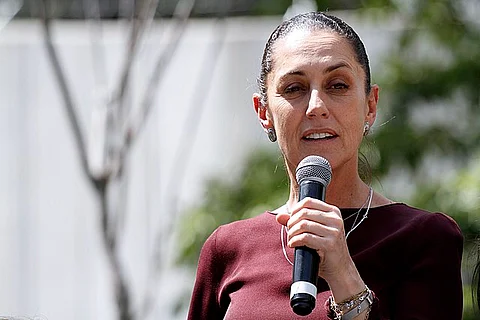

Sovereignty Red Line Drawn
Mexican President Claudia Sheinbaum delivered an unequivocal rejection of U.S. military intervention on August 9, declaring: "There will be no invasion of Mexico, that is ruled out, absolutely ruled out." Her statement followed New York Times reports that President Donald Trump secretly signed a directive authorizing Pentagon operations against cartels designated as terrorist organizations. Sheinbaum emphasized that while Mexico collaborates on security issues, U.S. troops or strikes on Mexican soil are categorically prohibited, a position repeatedly communicated to Washington in "every call".
Contested Legal Ground
The U.S. terrorist designations, applied to six Mexican cartels, Venezuela’s Tren de Aragua, and El Salvador-based groups purportedly enable military force. However, legal experts warn such actions would violate international law and Mexican sovereignty. Ilan Katz of the Mexican Bar Foundation condemned unilateral strikes as an "unprecedented violation" setting a "terrible precedent for U.S. involvement in Latin America". Even U.S. officials admit operations face legal hurdles, with former State Department attorney Brian Finucane noting terrorist designations alone don’t authorize military force.
Venezuela Targeted in Parallel Crackdown
The Trump administration simultaneously escalated pressure on Venezuela, doubling its bounty on President Nicolás Maduro to $50 million and designating the Cartel of the Suns as a terrorist organization. Venezuelan Foreign Minister Yván Gil dismissed the allegations as "the most ridiculous smokescreen we have ever seen". Sheinbaum further undermined U.S. claims, stating Mexico found "no evidence" linking Maduro to cartels and demanding proof.
Cooperation Amid Coercion
Despite public clashes, behind-the-scenes collaboration continues. U.S. Ambassador Ronald Johnson praised joint efforts reducing fentanyl seizures by 50% and border crossings to record lows and Mexico deployed troops to its northern border and extradited traffickers to appease Trump. Yet Sheinbaum balances pragmatism with principle, accepting intelligence sharing while rebuffing Trump’s May offer of troop deployments with the declaration: "Our sovereignty is not for sale".
Hypocrisy in Policy
Analysts note contradictions in Trump’s approach, 25% duties on Mexican imports were imposed despite security cooperation and they strain economic ties. U.S. drones also already patrol Mexican airspace, and Navy ships monitor coastal waters, testing sovereignty limits. Fentanyl seizures began declining before Trump’s policies, influenced by cartel infighting and Chinese chemical restrictions.
Risks of Escalation
University of Warwick professor Benjamin Smith warned military action could backfire catastrophically: drone strikes based on "drug dealer" intel might kill civilians, while port interventions could pit U.S. forces against Mexico’s military. Meanwhile, Mexico’s 500+ fragmented criminal groups, embedded in politics and diversified into mining, logging, and extortion make "decapitation" strategies futile.